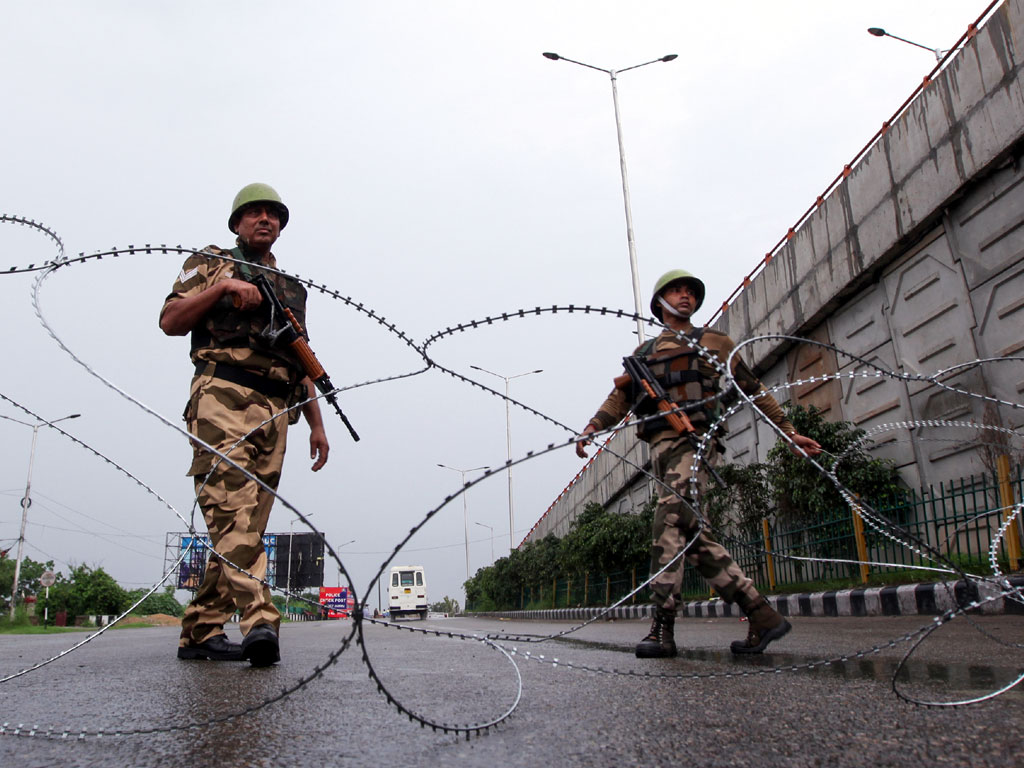In congruence with the decision of removing Article 370 on 5 August last year, the Government, on 4 August, declared that any official including senior IAS and IPS Officers, allegedly involved in anti-national activities, can be dismissed without any inquiry into the matter. The matter is an area of concern since albeit the decision invokes an article of the constitution, yet it stands against the principles of natural justice.
The Committee under the J&K Government
A Committee under the Chief Secretary B.V.R Subrahmanyam, recently formed, will examine and provide recommendations for action. Including the dismissal of such officers that have been associated with anti-national activities against the Union of India.
As a matter of fact, this has been a result of the Order invoking Article 311 (2)(c) of the Constitution. Explicitly, the Article allows dismissal, removal or reduction in rank of persons employed in civil capacities under the Union or a State on grounds determined by the Government.
“The cases shall be referred by the administrative departments or police organisation to the Home Department. On receipt of such report, the Home Department shall examine the case and upon satisfaction that the case meets the requirements of Article 311(2)(c), it shall place the case before the committee. The recommendations in respect of such cases shall be supported by relevant records which may include a copy of the interrogation report and other collateral evidence to justify dispensing with the holding of an inquiry in the interest of security of the state.”
-THE ORDER BY THE GOVERNMENT
The Order went on to add that the home department shall place each case along with the recommendations of ADG, CID, J&K before the Committee so formed. Additionally, the Administrative Secretary, Home department, has to process the recommendations of the committee for orders of the competent authority in terms of Article 311(2)(c) of the Constitution of India. Then, the General Administration department will issue the dismissal orders after the approval of the competent authority.
It also stated that background checks of the officials will be done. While, their punishment will be deferential, based on the degree of their offence.
Article 311(2)(c)
Article 311(2)(c) of the Constitution states that no government official can be dismissed or removed from service or reduced in rank in the absence of an inquiry. That is, except in circumstances where the President or the Governor (as the case may be) stands satisfied that in the interest of the security of the State, it is not expedient to hold such inquiry.
Therefore, it basically gives constitutional protection to civil servants when government initiates the process of their dismissal, removal or reduction in rank. During the probe, civil servants have the opportunity to present their case.
However, sub Article (2)(c) of Article 311 is an exception to the procedural safeguards given under this Article. When the person is dismissed or removed in the interest of the security of the state; then they can be dismissed directly without a probe or a subsequent inquiry into the matter. Therefore, now the Lt Governor of J&K can take action against errant officers on the recommendations of the committee.
Earlier, the Article did not apply to the State of Jammu & Kashmir; since it enjoyed a special protection status under Article 370. However, the Government abrogated the Article 370 in August of last year.
Congruity with the Constitution & the Principles of Natural Justice
The decision of applying the exception to the Article 311 might prove to be inconsistent with the Constitution. To explain, Article 311 protects IAS and IPS Officers, along with other Government Officials,
The right to no inquiry or probe into the matter deprives the Right to Equality and Personal Liberty. In essence, the fundamental rights under Articles 14 and 21 of the Constitution of India. Thus, putting the decision that has been welcomed by the BJP Government in question.
Among the principles of natural justice, Audi Alteram Partem is one of the most essential principles. It literally means ‘the right to be heard’. Clearly, the decision compromises the stance of equality and personal liberty of the civil servants. As they do not even have a chance to explain their side of the story.
Consequently, the decision goes against the moral, ethical and bona fide principles established by the judicial precedents and interpretation of the law. By dismissing officers on hearsay evidence and no real basis, the Government clearly strips them off of their rights under natural justice.
Even innocents will carry a target on their back with the implementation of this Article. This, essentially, renders the Presumption of Innocence (assumed ‘innocent until proven guilty‘) pointless and in vain. In practicality, the decision of the J&K Government stands against the very crux of democratic principles.

